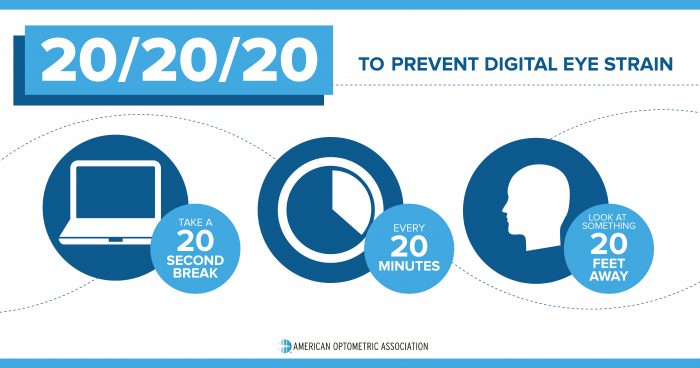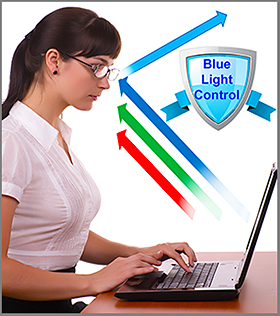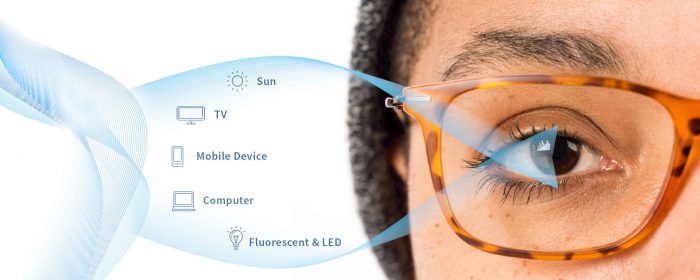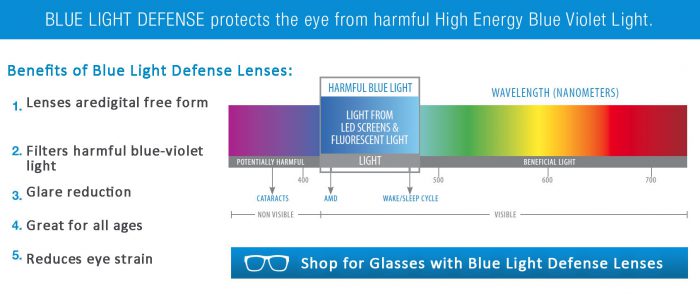Blue Light Blocking Lenses
Let’s not get ahead of ourselves…
The concept of blue light blocking lenses has come under scrutiny and criticism because of the many bold claims that were initially being made.
So let’s clear the air: NO. There is no current evidence that blue-blocking lenses will stop macular degeneration in its tracks, cure all headaches, and guarantee you a good night’s rest.
But what they CAN do is provide RELIEF. So if you’re already thinking of an anti-reflective coating, why not consider one that also helps alleviate some of the strain from blue light?
Wait, what’s wrong with blue light?
White light is made up all the other colours from Red to Blue. Blue light, however, packs more of a punch in terms of energy, and this can sometimes pose a problem, in two ways:
- It can be associated with dry, strained, and fatigued eyes, even leading to headaches.
- The blue light signals your brain that it’s still daytime. This can push back your sleep cycle making you feel tired and unrested in the morning. (Screen use is not recommended 30 minutes before bed).
But isn’t blue light natural? Why is it a problem all of a sudden?
Technology. That and our bad habits.
We are increasingly exposed to higher blue light from overhead LED lighting as well as the digital devices we depend on for leisure and work. Also, we are also using these devices closer to our bedtime. This high-energy blue light is more than our eyes are normally accustomed to.
By using a coating that filters out some of the high-energy blue light, you reduce the cumulative effects and return your blue absorption to normal levels.
So you’re telling me I NEED this?
Nope! 🙂 But it helps.
More important than coatings, however, are the good habits we can develop, such as the following tips for avoiding dry, tired eyes associated with light fatigue:
- Avoid using digital devices at least 30 minutes before bedtime (ideally an hour).
- The 20/20/20 Rule: When using your phone, tablet or computer, every 20 minutes look 20 feet away for 20 seconds. This relaxes your eyes and reminds you to blink. (We blink 67% less when looking at screens!)
- Consider using your computer’s screen dimming and colour shifting feature. Sometimes it’s called the “Night Light” feature. Your computer mimics what happens in the natural sky (ie. less blue light closer to bed and more red… which is what your eyes expect).





